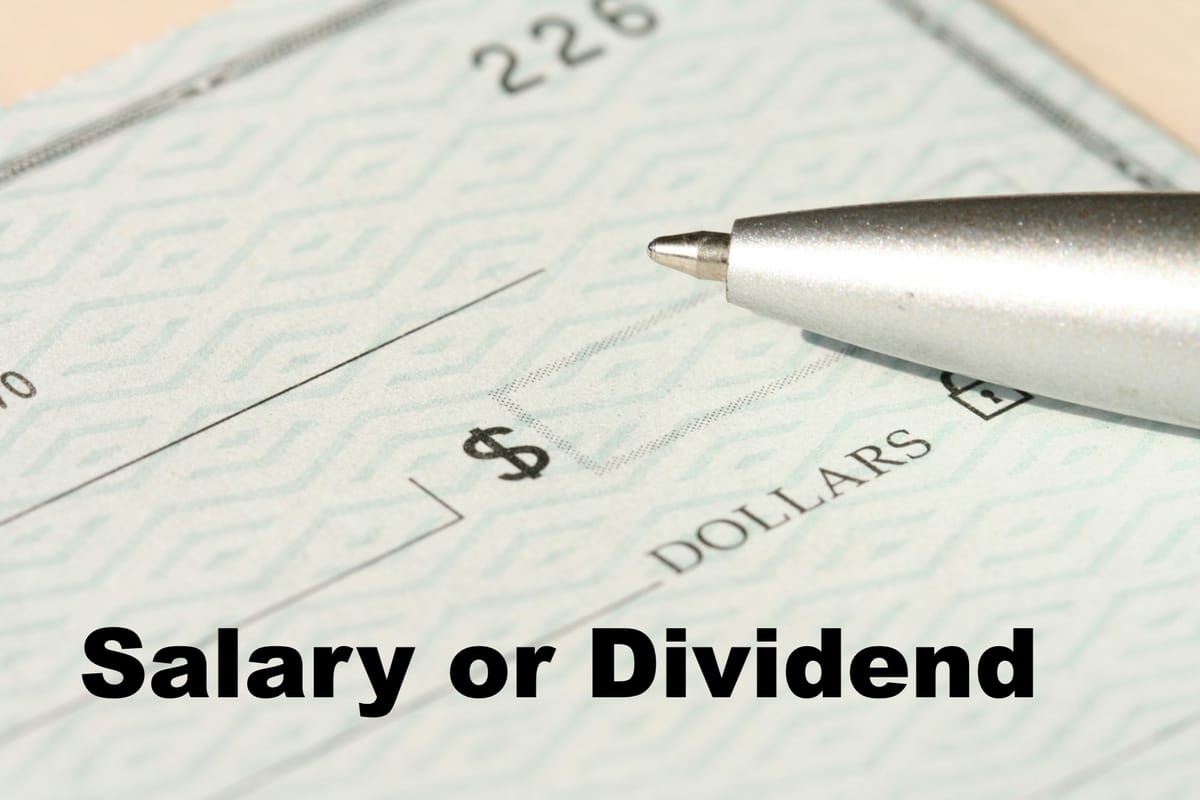How to Pay yourself from Clinical Research Consulting Business and Keep More Earnings
An overview of paying salary, dividends, or keeping money in a corporation for a clinical research consulting business.

If your clinical research consulting business is seeing success, then you will have made a few sales--congratulations!
Now you might be wondering how best to pay yourself so that you can keep more of your earnings from the tax gremlin's clutches. Should you pay dividends, pay salary, or keep money in the business?
This article will review a few things to do with your hard earned money and the advantages and disadvantages of each. The information presented is not financial advice, please speak to an accountant about your particular situation. The information presented here is from a Canadian perspective, but the main concepts should be generalizable.
Let's go!
Sole Proprietorship 🫅
If your business is not incorporated then the question of dividend vs salary doesn't matter until you are incorporated.
You will have to report all income (and expenses) to the government and the tax gremlins will have their payday.
The next section will focus on incorporated businesses.
Dividend 🤑
Put simply, a dividend is money paid by a corporation to its shareholders.
If you have a corporation for your clinical research consulting business, it is likely that you are the only shareholder. If not, hopefully you spoke to a lawyer and an accountant before setting up your corporation and have a special class of shares for just you so you can choose to pay a dividend instead of salary.
Here is why you may want to choose a dividend.
Why Choose Dividend over Salary
The main draw of dividends is that there are no taxes to withhold.
When you pay a dividend, there are no payroll taxes to pay (such as CPP, EI, or income tax). This is great for a few reasons.
- Simpler - you don't have to calculate how much taxes to withhold and send to the tax gremlin's every time you pay yourself.
- No penalties - if you don't calculate how much tax to withhold or remit it late to the government, the fees are crazy. They are a percentage of payroll. As a business owner, you may only pay yourself a few times per year so the fees could be hundreds or thousands of dollars.
- Less expensive - by paying dividends instead of salary you don't need to pay EI or CPP so you can save more money.
Salary 💵
You are likely already familiar with receiving a paycheque from previous employment.
The difference here is that you sit on both sides as the business owner and the salaried employee. Let's dig into why you may want to pay a salary.
Why Choose Salary over Dividend
The first advantage with salary is that it is easier to save for retirement. Here is why.
- Canada Pension Plan (CPP) - with a salary you are also forced to pay into CPP. This is forced savings as you will get payment from the CPP program when you retire. You don't need to set this money aside and not touch it for 30 years. The government does that for you and also generally makes conservative investments with the money so it is there when you retire.
- Build Registered Retirement Savings Plan (RRSP) room - you build room in your RRSP based on earned payroll income the previous year. If building RRSP room is part of your financial plan then you should be paying out a salary to build room. There is no gain from dividends.
The last big advantage for salary vs dividends is that it is easier to get a personal loan.
Lenders-such as mortgage lenders-like to see regular employment income in the form of a salary or hourly wage for a few years before the date you make your loan application. Generally dividend income doesn't count in their eyes because it is too variable.
If you are planning on buying a home with a mortgage in the near future, it is better to take a salary.
Keeping Money in the Business 🏢
Finally, what about just keeping money in the business and not paying yourself at all, at least not immediately?
If you don't need the money, it can be advantageous to leave money in the corporation. Here is why.
- Invest and grow the business - Money left in the corporation can be used to grow your clinical research consulting business. If executed well, this can offer a great return. For example, take a course and level up your skills to be able to provide better solutions to your clients. Or invest in hardware or software to improve your business.
- Invest inside the corporation - you can hold investments inside a corporation (like ETFs) that you can hold personally. A big draw to holding investments inside the corporation is that you have more capital if you keep the money inside the corporation. This is because (generally) corporation tax rates for clinical research consulting businesses will be lower than personal tax rates.
What I Do with My Clinical Research Business 💼
Over the years I have always done one thing consistently.
Listened to the advice of my accountant.
Early on the advice was to take mostly salary. As the business has grown, more and more dividends are taken out and the salary generally stays the same every year. Once the business really took off the vast majority is left inside the corporation.
I can't stress enough that you should hire an accountant and listen to their advice. They have saved my business tens of thousands over the years.
However, if you would like a deep dive into this topic the Loonie Doctor is a fantastic resource.
Summary
This article has reviewed the reasons to pay salary, pay dividends, or to leave money in the corporation.
If you found this information useful, please consider sharing. If you want more of this content, please consider subscribing. If you have insights of your own please consider reaching out to me. Get in touch!




